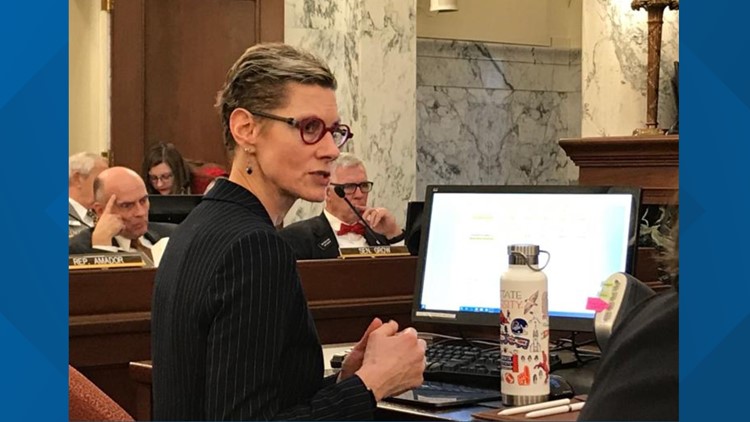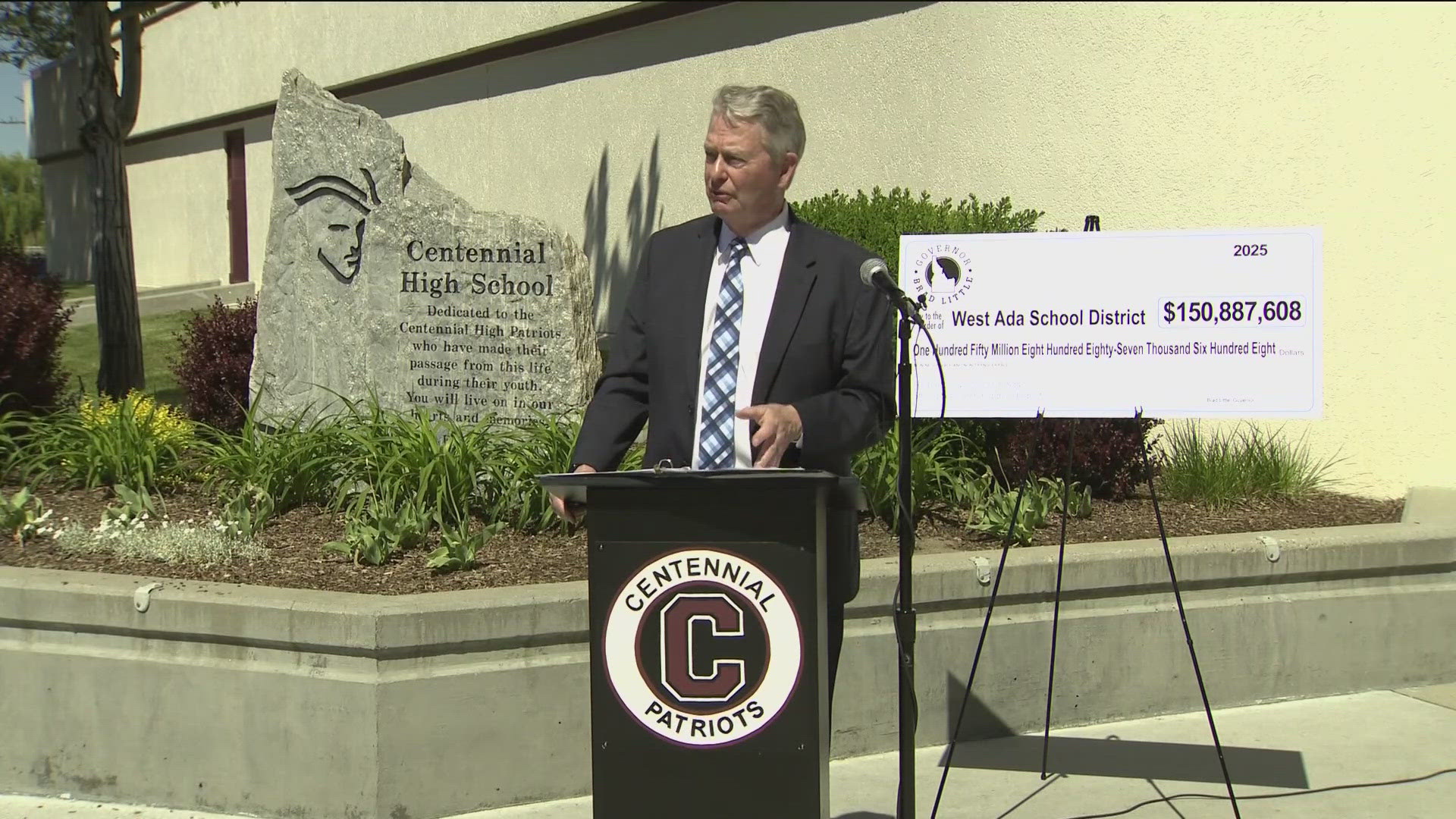BOISE, Idaho — New Boise State University President Marlene Tromp wowed lawmakers at her first budget hearing on Friday, focusing on how Boise State University can best serve students despite budget cuts.
“I know the future of BSU is in great hands under your leadership,” said Rep. Rick Youngblood, R-Nampa, co-chairman of the state Legislature’s budget-writing Joint Finance-Appropriations Committee. “Go Broncos.”
Tromp painted a picture of a vibrant, growing university that’s on the cutting edge of innovation. Boise State was up to 26,272 students in October, and, by head-count, including part-time students, 32,540.
“We are the state’s largest graduate school, Idaho’s fastest-growing research enterprise and home to a third of all students in Idaho’s public higher education system,” Tromp told JFAC. “Boise State has been gaining national recognition for our accomplishments, our excellence, our quality.”
Lawmakers asked her about the impact of the governor’s 2% base budget reduction for next year on the fast-growing university.
“It’s never easy to face a budget cut,” Tromp responded, “but what it forces us to do is to really think creatively. And because the campus has been known for innovation, I’ve asked our leadership team to really think creatively.”
She offered an example: “Our head librarian, the dean of the library, said she’s going to cut several journal subscriptions. … We’re going to do an innovative model where it’s pay-for-use instead of traditional subscription” for some of the less-used journals. The dean, she said, “used some of savings … to hire a new staff person who specializes in open access. … So it’s really a forward-looking way in taking that budget cut.
“Our library has faced serious cuts,” she added. That’s prompted the university, she said, to look “at how we communicate with faculty and students so they understand how to access our materials,” even with cuts. It is, she said, “an opportunity to think forward. Instead of simply lamenting what they have to lose, to think … about what the future would look like, and invest there.
“This is a serious, serious matter,” Tromp said. “We have to be attentive to our students. … We do have a concern that we watch very carefully to see where any impacts might be, because the students are at the heart of our mission.”
She told the joint committee, which is charged with writing all state agency budget bills, “Boise State has committed to students that, if you stay on your major’s map, if you follow that map, that you’ll be able to graduate in four years. … I’m not sure that we could face another budget cut and still keep those courses intact for our students. So it is a very, very serious matter, but I’m hopeful at this time that we’ll be able to continue to support our students effectively.”
RELATED: Idaho state superintendent not sold on plan to fund public education with sales tax increase
Throughout Tromp’s presentation, she used research data and on-the-ground examples to illustrate many of her points, including her responses to lawmakers’ questions.
Asked about how the university is working to serve Idaho’s rural students, Tromp, who grew up in Green River, Wyoming, responded, “I have deep and profound commitment to serving our rural students in Idaho. … As some of you may know I’m building a rural program that’s launching this fall. We’re targeting three cities: McCall, Payette and Mountain Home.”
She explained that what BSU has found is that often rural students enroll in online programs because they need to stay in their communities to work or raise families, but they haven’t been as successful in those programs as they have been when “they can be on campus, face to face.”
Tromp said when she was at Arizona State University, she built a model that was “very successful” for serving a Native American community with a low graduation rate; it saw an 89% graduation rate, and 50% of those students went on for master’s degrees.
Following the model of that program, she said, her Idaho rural program starts with the community itself selecting the degree program that would best meet its needs. Then, faculty and staff from the university meet with the students face-to-face for a week. That’s followed by a “hybrid model” in which the students take online courses, but BSU also will hire a person in the community to support them, working through libraries or community centers. Then the faculty will return to the community, before students start their end-of-semester projects or exams, to “make sure the students have wrapped their arms around the issue.
“So they’re always going to have a real human they can deal with,” she said, along with a cohort of classmates with whom they can interact, even if they’re remaining in their rural communities rather than traveling to the campus in Boise.
“One of reasons we’re doing three pilot communities this fall,” Tromp said, is to “see what Idaho needs. … My vision is to grow that program for three rural communities every year.”
Rep. Melissa Wintrow, D-Boise, told Tromp, “I really value your creativity, your innovation, and your approach. You’re reaching out, you’re taking the initiative — you’re really creating.”
JFAC is in the process of holding budget hearings on all state agency budgets; it’ll begin voting on setting budgets in mid-February.
Betsy Z. Russell is the Boise bureau chief and state capitol reporter for the Idaho Press and Adams Publishing Group. Follow her on Twitter at @BetsyZRussell.
More from our partners at the Idaho Press: Normally elusive mountain lions take center stage in series of attacks on pets in Wood River Valley, Cascade



